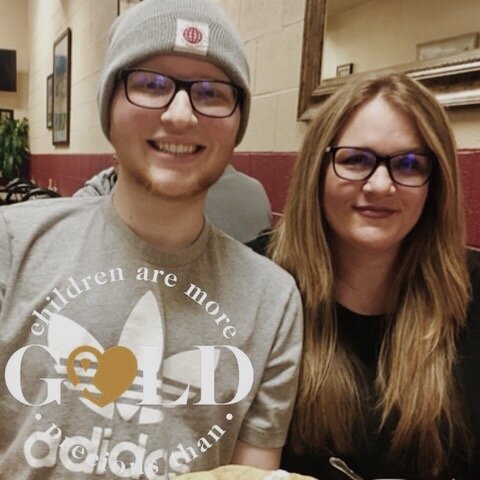Supporting Each Other After the Loss of a Child, Guest Writer: Jessica Stewart
Compassionate Friends conducted a study in 2006 stating, “72 percent of parents who were married at the time of their child’s death are still married to the same person. The remaining 28 percent included 16 percent in which one spouse had died, and 12 percent of marriages had ended in divorce.”
My first thought was, “Of the 28% where the spouse dies, how many of those deaths are suicide?” I’ve been in the pediatric cancer community for 5 years now, and unfortunately I’ve learned some parents cannot bear the death of their child, so they take their own life. It crosses the mind of the strongest and bravest parents.
Since learning my son had an 80% chance of being cured of Leukemia, then losing him, I am not a big follower of statistics.
However, knowing my marriage could be at risk after losing our son, made me very vigilant at a time when I could hardly focus on anything.
Something I learned from the book Love and Respect, (by Dr. Eggeriches) is men feel loved when their spouse is simply present. When my husband, Aaron, woke up each morning crying, I laid on his chest. I was just there. Present. Hurting with him, but saying nothing.
Part of loving and supporting a spouse through grief, is allowing them to grieve in their own way. Division can come easily. You are both running on empty emotional tanks. Your spirituality may be stunted. You want to draw comfort from the one who’s job it is to love; you but they are empty too. There’s nothing there.
In my sadness, when I saw Aaron wear something of our son’s to feel close to him, I wanted to be mad. A pain as heavy s as losing a child is so tremendous, your mind is searching for a way to release some of it. Anger is a secondary emotion. Spouses are tempted again and again to lash out. The truth is, you don’t need more pain, and that’s what you end up with when you start taking things out on your spouse. So, when Aaron wore something of Joel’s, instead of reacting, I would have to think, “If wearing Joel’s t-shirt brings me comfort, how can I blame Aaron for wanting to do the same thing?" You have to guard your heart and your tongue.
Taking a trip sounded ridiculous to me, but my spouse thought it would help to get away. We left for Cancún a few weeks after Joel moved to Heaven. Removing yourself from your current living space, to a land not saturated with memories of your lost one, may help you to breathe. We walked, we talked, we cried. We sat and watched the ocean ebb and flow. We watched the sunrise, and the sunsets. Here, there was a chance to feel a bit of peace… to feel like we could breath. Broken me, fitting into broken him, doing our best to hold each other up as we limped through grief. Never judge someone’s relationship with a lost one. You may wonder why your spouse is so sad, because they were not close to the parent they lost. You can mourn so much more than a person’s presence. Death can also be a trigger for other issues. We cringed when someone would put emphasis on Joel being Aaron’s stepson. People should be allowed to mourn whatever it is they feel they lost once someone passes away. A chance a reconciliation, a dream to have a close relationship, a childhood hunger for a father, or a feeling of being safe. We don’t know.
Be present. Just breath. Allow room for grief to unfold without taking things personally. Hold hands. Don't make room for division. Create a safe space to talk. At some point the grief will spill out in words. You won’t have all the answers. Just give love, acceptance, and reassurance. Deeply hurt people don’t usually want to be cheered up. You can’t fix things. You can’t save your spouse. Persist with relentless love.



